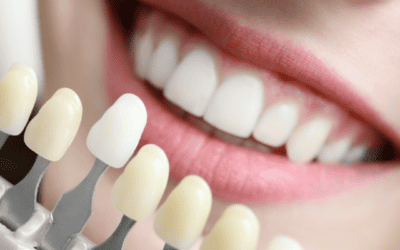With most of us being at home a lot more, the temptation to snack and to ‘treat ourselves’ to our favourite vices has never been stronger. However, healthy eating is so important and should be an everyday habit and a lifelong commitment.
Our dentist Mishari loves cooking and we’ve already shared on the blog his healthier alternative to KFC. He loves cooking things from scratch, so he know exactly what goes in to it. Food manufacturers hide sugars in a lot of our food where we don’t expect it. Notorious for this is anything labelled ‘fat free’. Just check the ingredients for the sugar content.
In this blog, I want to give you some more of Mishari’s sugar-free recipes and why it’s important for us to limit our sugar intake and watch what we snack on.
What does sugar do to the body?
According to the World Health Organisation, poor diet and physical inactivity are some of the most common causes of non-communicable diseases (NCD). They are also a risk factor for obesity, which is a risk in it’s own for non-communicable diseases and which is rapidly increases across the globe. A high level of free sugars intake is a concern as it’s associated with a poor quality of diet, obesity and an increased risk of a non communicable disease.

A healthy lifestyle – diet, exercise and regular
health and dental check-ups – will help keep
you healthy.
What is a non-communicable disease?
A non-communicable disease (NCD) is one that is not transmissible from one person to another, for example heart disease, most cancers, diabetes, Alzheimer’s disease, osteoporosis, stroke, Parkinson’s disease, autoimmune diseases, chronic kidney disease and of course tooth decay.
If fact, dental decay is the most prevalent non-communicable disease across the world. Tooth decay causes pain, a limit in function (including time off work and school) and the social and mental implications of tooth loss or being self-conscious about your smile.
The WHO also states that although exposure to fluoride reduces dental decay and delays the onset of cavities forming, it does not completely prevent it. This just shows how important diet it. You can brush and floss and do all the prevention you can, but if you are still consuming a lot of sugar, you will still get decay.
To read about the different stages of tooth decay, check out another one of our blogs.
NCDs are the leading causes of death and were responsible for 38 million (68%) of the world’s 56 million deaths in 2012.
What other damage can sugar do?
Studies have shown association between a high-sugar diet and a greater risk of dying from heart disease. One study, published in the JAMA Internal Medicine in 2014 found that those who got 21% of their calories from added sugar had a 38% greater risk of dying from heart disease than those who only consumed 8% of their calories from sugar.
In addition, your liver metabolises sugar much like it does alcohol. It converts sugar to fat. Over time this can lead to fatty liver disease. This can contribute to diabetes and increase your risk for heart disease. Too much sugar can also increase blood pressure and chronic inflammation. Both of these can lead to heart disease and stroke. (1)

Healthy foods and snacks are great for your
general health, not just your dental health.
What are the different types of sugar?
The term “sugars” includes intrinsic sugars, which are those incorporated within the structure of intact fruit and vegetables and sugars from milk (lactose and galactose). You may have heard the term ‘natural sugars’ to describe these. These sugars pose little problems to the teeth provided they are within their original intact form. For example, eating an apple is much less damaging for your teeth than drinking apple juice or eating dried apple.
Free sugars, are those which are added to foods and beverages by the manufacturer, cook or consumer – you may also hear these being called ‘added sugars’. However, free sugars also include those naturally present in honey, syrups, fruit juices and fruit juice concentrates. It’s the free sugars that cause problems with your teeth and your general health.
These free sugars are the ones added into your ketchup, bread, yoghurt, cereal and even baked beans. When buying anything in a packet, my advice is to look at the label and check under ‘carbohydrates of which sugar’ . Compare this amount per 100 grams to other similar products to see which is the lowest sugar version (you can also do this to check salt content).
Why is snacking bad?
Plaque bacteria love sugar. When you eat sugar, these bacteria feed off it, producing acid. This acid causes tooth decay – the teeth start to rot and cavities form. This can be caused by eating sugar, or even eating something that breaks down into sugar (carbohydrates, like bread). Every time you snack, your teeth go under this ‘acid attack’. It can take up to 20 minutes for your saliva to neutralise these acids. If you keep snacking, your saliva will struggle to neutralise the acids – every time your mouth has almost gone back to normal, you have another square of chocolate, biscuit or a sip of a sugary drink, and the cycle begins all over again.
VIDEO
Some sugar-free recipes
Home-made Pizza
Mishari made this healthy home-made pizza, which you can whip up easily at home using whatever vegetables you have in the fridge (or freezer) for your toppings.
This recipe makes 2:
- Mix 230 g of wholemeal flour, some salt & pepper, a sprinkle of fennel seeds, 2 sprigs of thyme, 125 ml water a tsp of olive oil and make into a dough ball. Knead the dough out until not sticky and then cut the ball in half. Roll each half out into any size/thickness you like
- Heat a pan with a splash of oil – pop the flatbread in, and cook on both sides for 5 mins total ( until browned, slightly crisp)
- Heat oven to about 200 degrees ( fan)
- Cover each pizza base with a teaspoon of tomato paste, then add your cheese (e.g. mozzarella) and whatever veg you like (Mishari used mushrooms, broccoli, sweet corn and spinach)
- Heat in oven for about 10 mins
- After it’s cooked remove and enjoy!

Rice Salad
Another of Mishari’s favourites is this tasty and nutritious rice salad. He credits the inspiration from a good dentist friend of his.
- Use any rice you like and quantity appropriate to how many you’re feeding. Cook the rice according to the instructions with an added splash of vegetable stock.
- Use 1 tin of black beans (or equivalent amount of cooked dried beans) and 1 cup of frozen or 1 tin of corn (cook as required).
- Non-vegan option: boiled eggs – boiled, peeled and cut into quarters.
- Chop vegetables into chunks – Mishari used 3 tomatoes, cucumber, 2 capsicums (one red and one green) and 2 large handfuls of spinach
- Place the rice, corn, beans and vegetables in a large bowl and mix together with a good amount of extra virgin olive oil, salt and pepper, and the juice of 1 lemon (or lime).
- Place the eggs on top.
- Mishari placed this in the fridge to chill before serving cold.
Great on its own as a vegetarian or vegan (minus the eggs) lunch, or as a side salad to a larger meal.

Rice, beans and vegetable salad
(vegan if leave off the eggs).
Healthy Snacks
Swap out chocolates, biscuits and other sugary snacks for these alternatives:
- Cheese on crackers
- Veggies (carrots, cucumber, capsicum) dipped in hummus
- Nuts
- Fresh fruit
- Peanut butter on crackers or toast (make sure you go for natural peanut butter made from 100% peanuts – no added salt or sugar).
- Boiled egg

Tooth friendly snack (make sure there is no
added sugar in the peanut butter).
Worried you have been eating too much sugar? Worried you have damaged your teeth? Book in for a check-up to get your teeth checked out & discuss your diet with the dentist.
References
(1) https://www.health.harvard.edu/heart-health/the-sweet-danger-of-sugar



